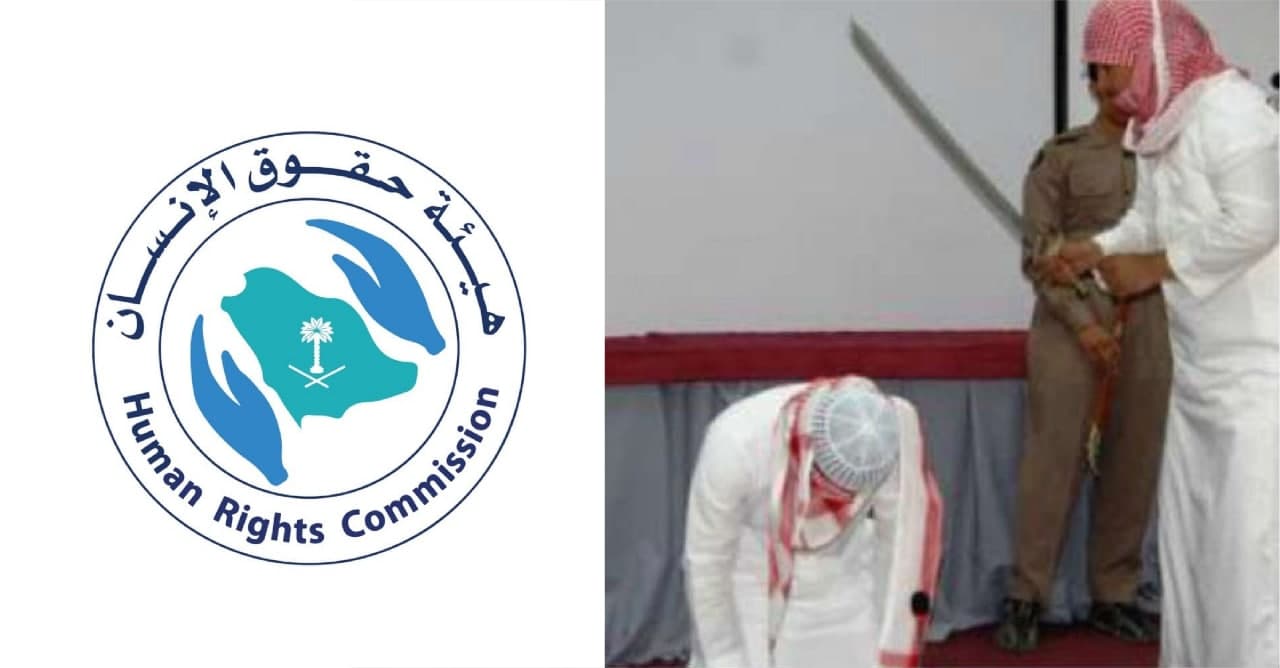
The Human Rights Commission in the Kingdom of Saudi Arabia published a statement on the number of executions carried out during 2020, praising the 85% rate of reduction in the number of executions compared to 2019. The Commission’s statement comes amid threats of execution to dozens of political detainees, prisoners of conscience, and those accused of non-serious crimes, including minors.
The Commission’s statement on the annual execution toll is uncharacteristic, since it did not issue such a statement during the years that saw the highest number of executions in the country’s history, from 2015 to 2019. This highlights the nature of the Commission’s role, which revolves around whitewashing the government’s bad record or justifying its violations by saying its actions are legal and consistent with human rights.
The Human Rights Commission plays a role that is not adequate in keeping with the principles related to the Status of National Institutions for the Promotion and Protection of Human Rights (“the Paris Principles”). Its work is seen to focus on improving the deteriorating image of the Saudi government. The first article of the Paris Principles states that national human rights institutions “shall be vested with competence to promote and protect human rights,” with the responsibility of “[d]rawing the attention of the Government to situations in any part of the country where human rights are violated.” [Article 3(a)iv] However, the Commission appears to play no such role, especially in light of receiving thousands of complaints each year; according to its 2019 annual report, it received 4211 different complaints. According to ESOHR’s information, the Commission received a complaint from citizen Abbas al-Hassan regarding torture and denial of a fair trial, yet he was executed in April 2019. The Commission also received a complaint of torture and lack of a fair trial from a Jordanian citizen, Hussein Abu al-Khair, who may be executed at any moment on drug-related charges.
While human rights organization statistics, based on information published by the official news agency, indicate that Saudi Arabia carried out 25 executions in 2020, the Human Rights Commission said there were 27 executions in 2020. This raises suspicions that the execution statistics provided by rights organizations in past years are lower than the actual numbers. ESOHR has documented 814 executions from 2015 to 2020.
The Human Rights Commission’s statement, which it has so far issued only in English, is not based on laws known to have been issued by competent authorities. In its statement, it said that there is a moratorium on the death penalty for drug-related charges. In reality, the execution of those charged with drug offenses falls into the category of ta’zir [discretionary] killing, and no official decision has yet been made to end this practice, except for Saudi media reports in June 2020 about a mere recommendation raised by the Shura Council (the unelected chamber of Parliament), calling for the abolition of the ta’zir death penalty. In the absence of judicial parameters, ta’zir death penalties in Saudi Arabia are mostly controlled by the political mood, thus keeping the risk of execution present and ongoing for dozens if not hundreds of detainees.
In addition, the statement—which indicated that Saudi Arabia had stayed the death sentences against minors Ali al-Nimr, Dawood al-Marhoon, Abdullah al-Zaher, and Mohammed al-Faraj, and substituted them with other penalties in accordance with the Juvenile Law—shows that non-public trials of minors do not adhere to the conditions for a fair trial—something the Commission ignores. Moreover, the Commission turned a blind eye to other violations, including the Public Prosecution’s demand in contravention to the Juvenile Law.
Furthermore, the names of those mentioned in this statement are known to the media. ESOHR has suspicions about the existence of other prisoners, detained minors, or those facing charges going back to when they were under the age of 18, whether in political or criminal prisons. The Commission is not concerned with verifying their presence or protecting them; it limits itself only to the names raised in the media, even though one of its official tasks is to visit prisons, according to Paragraph 6, Article 5 of its formation. These suspicions are confirmed by Saudi Arabia’s April 2020 execution of a minor, Abdul Mohsen al-Ghamdi, whose name was not among those raised in the media, and, before him, six minors in April 2019. These executions occurred despite the Commission’s statement on the prohibition on corporal punishment against children since 2018, and its extension in 2020, to be applied retroactively.
ESOHR believes that the statement’s contents do not provide a decisive view of the course of ta’zir executions, nor assurances that the execution of minors will not be repeated. It is also clear that the Commission is indifferent to the conditions for fair trials, with ongoing violations in the cases of dozens of individuals at risk of execution. There are currently no fewer than 42 people at risk of execution, including minors. The Commission continually provides justifications and covers up official violations; consequently, it is not in a position to play a role in promoting a policy of accountability.
